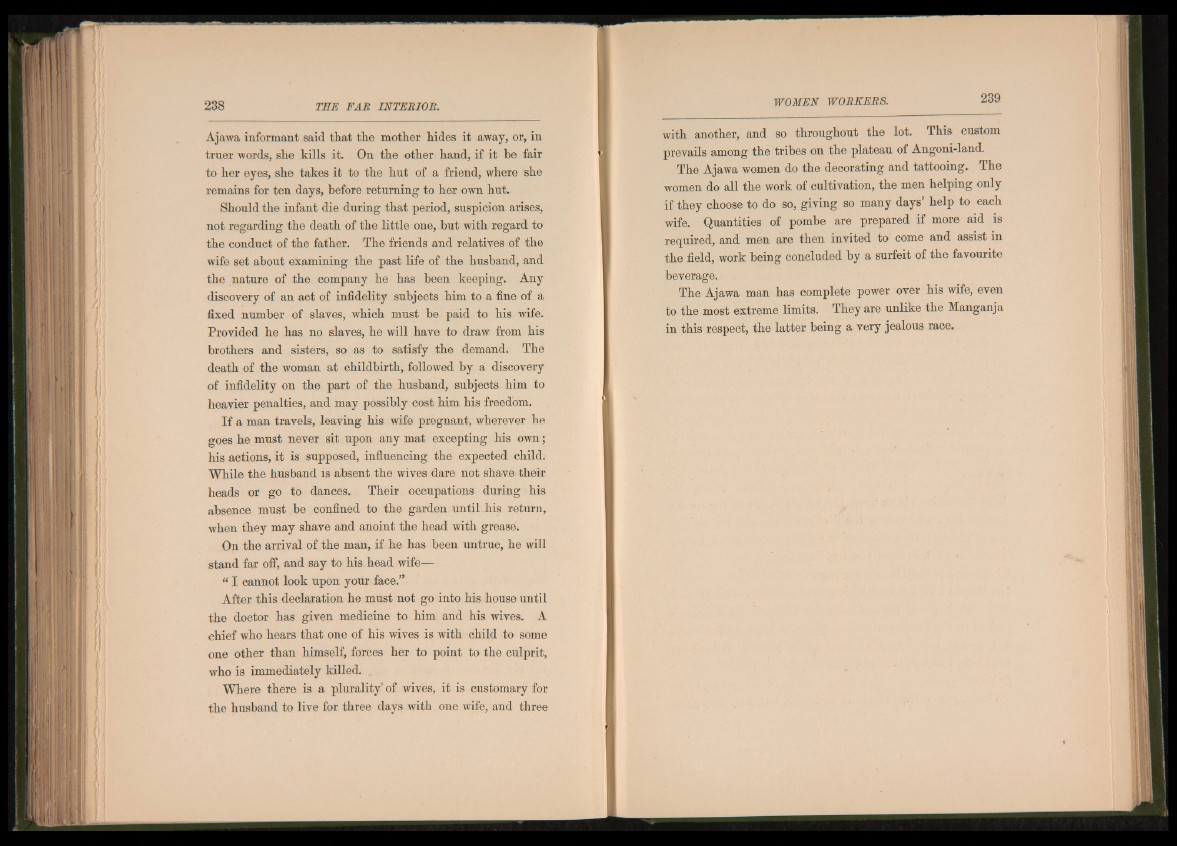
Ajawa informant said that the mother hides it away, or, in
truer words, she kills it. On the other hand, if it be fair
to her eyes, she takes it to the hut of a friend, where she
remains for ten days, before returning to her own hut.
Should the infant die during that period, suspicion arises,
not regarding the death of the little one, but with regard to
the conduct of the father. The friends and relatives of the
wife set about examining the past life of the husband, and
the nature of the company he has been keeping. Any
discovery of an act of infidelity subjects him to a fine of a
fixed number of slaves, which must be paid to his wife.
Provided he has no slaves, he will have to draw from his
brothers and sisters, so as to satisfy the demand. The
death of the woman at childbirth, followed by a discovery
of infidelity on the part of the husband, subjects him to
heavier penalties, and may possibly cost him his freedom.
I f a man travels, leaving his wife pregnant, wherever he
goes he must never sit upon any mat excepting his own;
his actions, it is supposed, influencing the expected child.
While the husband is absent the wives dare not shave their
heads or go to dances. Their occupations during his
absence must be confined to the garden until his return,
when they may shave and anoint the head with grease.
On the arrival of the man, if he has been untrue, he will
stand far off, and say to his head wife—
“ I cannot look upon your face.”
After this declaration he must not go into his house until
the doctor has given medicine to him and his wives. A
chief who hears that one of his wives is with child to some
one other than himself, forces her to point to the culprit,
who is immediately killed.
Where there is a plurality* of wives, it is customary for
the husband to live for three days with one wife, and three
with another, and so throughout the lot. This custom
prevails among the tribes on the plateau of Angoni-land.
The Ajawa women do the decorating and tattooing. The
women do all the work of cultivation, the men helping only
if they choose to do so, giving so many days’ help to each
wife. Quantities of pombe are prepared if more aid is
required, and men are then invited to come and assist in
the field, work being concluded by a surfeit of the favourite
beverage.
The Ajawa man has complete power over his wife, even
to the most extreme limits. They are unlike the Manganja
in this respect, the latter being a very jealous race.